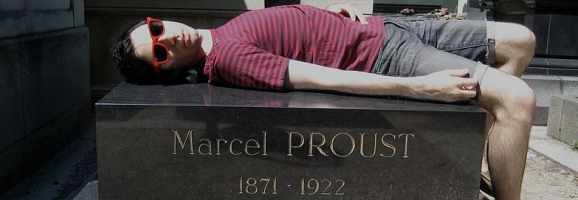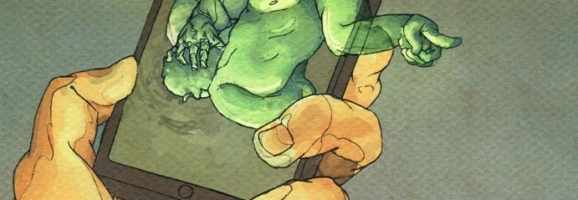Gay Apathy in the Poems of Alex Dimitrov: ‘Having Known Nothing / of the Why’
 Having previously published his award-winning poetry separately, Alex Dimitrov has collected recent and old work in his 2013 book, Begging for It. The result is truly a contemporary and American text that is charged with a confessional eroticism, littered with spiritual memories and concerned with modern issues of communication. This reflects his wider work as a founder of Wilde Boys, a poetry salon in New York City. When not serving cocktails, the salon focuses on bringing together new and established queer poets, while recovering the work of those neglected by history. Indeed, he is a proactively promotional poet. To many, he represents a generation of young gay men who were unaffected by the AIDS epidemic and have an unprecedented access to finding love through digital communication.
Having previously published his award-winning poetry separately, Alex Dimitrov has collected recent and old work in his 2013 book, Begging for It. The result is truly a contemporary and American text that is charged with a confessional eroticism, littered with spiritual memories and concerned with modern issues of communication. This reflects his wider work as a founder of Wilde Boys, a poetry salon in New York City. When not serving cocktails, the salon focuses on bringing together new and established queer poets, while recovering the work of those neglected by history. Indeed, he is a proactively promotional poet. To many, he represents a generation of young gay men who were unaffected by the AIDS epidemic and have an unprecedented access to finding love through digital communication.
Therefore, despite self-evident sensuality and passion of Alex Dimitrov’s poetry, we should question whether such emotion is at the expense of interacting with issues of economics, politics and ethics that affect all of our lives. Certain critics seem to think so, stating that his work exhibits “a willful disengagement with the struggles […] in the world today, as well as a disregard of those struggles of the past” (Rees). Questionably, this reflects the stagnation of political attitudes within the gay community. Recently, because they increasingly fail “understand the work that has gone on behind the scenes to provide them with the gains they have achieved, […] gays have become apathetic about anything that goes on beyond their borders” (Silver, 38). However, if one acknowledges that “Dimitrov openly mythologizes his own sexuality” (Glazier), we can his disengagement as a persona, one often depicted in his poetry, that he is ironically undermining and critiquing. Overall, this technique should achieve an awareness of the insular and apolitical atmosphere of the current gay community in the reader.

Some have criticized Dimitrov for his unrealistic and idealistic depictions of a completely cosmopolitan and liberal cityscape, saying to the author directly: “You do not live in New York City – you live in a simulacrum” (Rees). However, while Dimitrov may present this fantastical perception of the urban environment, he also critiques its apolitical and romantic isolationism, especially when he writes:
I walk the great streets of New York City
where many great people have lived
and think how great it is to live and die on earth
even if it means having known nothing
of the why. Nothing of the why. (Dimitrov, The Why, 8-12)
Here, the line break momentarily encourages the reader to regard the syntax as complete, implying that the speaker’s immersion in the city has caused him to have “known nothing” at all. This implies that a refusal to engage with larger philosophical, historical and political questions of “why” things are in their current state is equivalent to accepting ignorance and stupidity. Arguably, by linking such obscurantism to the place of New York, Dimitrov is highlighting how many “urban gays that live within a primarily gay community […] have become complacent or apathetic to most of which happens outside their communities. This is very dangerous” (Silver, 126). In fact, one danger of this political apathy that Dimitrov depicts is the loss of outward identity. Indeed, The alliteration of “known” and “nothing” manifests a forceful intonation, emphasizing how an apathetic or apolitical life leads to personal destruction of selfhood and agency. Thus, the city existence portrayed by Dimitrov is seen to weaken individuality and identity.
There is something cliched about how the speaker “walk[s] through the great streets” of the cityscape. The persona is becoming the literary trope of the flâneur: a leisurely explorer of the urbanity. This obvious adaptation of a literary device reflects a lack of agency and self-awareness in the apathy of gay city life. To be sure, the path Dimitrov’s character takes is utterly dissimilar to how the usual “queer flâneur travels through the diverse neighborhoods of the city, both friendly and hostile, […] [r]epresenting a refusal to prioritize familiar, domestic relations over political and social involvement” (Ivanchikova, 16). Instead, there are no specific details about the external architecture and populace of the city, illustrating a lack of scrutiny about the position of queer communities in the city. Developing this, the constant enjambment of run-over lines and the lack of punctuation have implications of a fast and unreflective experience, highlighting the sophistic apathy of contemporary queer culture.
The urban space also affects the knowledge of the queer past and personal agency in the future. Surely the repetition of “great” removes any specificity and individuality to those former inhabitants of the city, highlighting the destructive and amoral dismissal of the past. This reflects how, in gay rights, an “eerie apathy, coupled with an ignorance of recent history, seemed to set in […] a dormant stage, with many people appearing to believe we’d arrived” (Signorile, 75). In other words, a deliberate removal of an unjust history caused activism to cease and allowed for a physical and metaphorical ‘arrival’ of queer communities into more mainstream cities. Thus, by continually forgetting past events, one becomes increasingly anchored to the security of their current location and position. Hence, there is a parallelism of the word “great” on the fourth syllable of several successive lines, suggesting that the speaker is uncritically parroting received ideals about city life and that this provides a structure for him to passively obey.

Subsequently, there is a constant feeling of emptiness and desperation in Dimitrov’s speakers, often causing them to seek out an external form of identity and acceptance in a segregated area. This self-destructive quest is evident when the speaker says:
“I want to be in rooms full of people I love.
The world goes white and green again
like the mind telling the body it is not alone.” (Dimitrov, The Why, 1-3)
This desire for a separate space to continually find ‘love’, in combination with the feelings of temporal progression, evokes the prominence of nightlife to contemporary gay culture. To some, this represents how now is “not a time to worry about politics, […] it was most certainly party time once again. Many gay men plunged into the sex-and-drugs scene, […] submerging themselves further into their ghetto” (Signorile, 75). As a result, the end-stopped line can be seen to demonstrate this sense of constriction and segregation, showing the self-destructive aspects of gay apathy. Additionally, the vague and plural nouns of “rooms” and “people” imply a lack of direction and coherence in the speaker, arguably reflecting how the dominance of partying and the absence of politics make an impersonal or ineffective life.
As a consequence of such apolitical and amoral actions, one’s perceptions of the world and selfhood begin to narrow and deteriorate. For instance, the use of synecdoches like “white” and “green” to represent the vastness and extensiveness of the passing seasons has suggestions of simplification and reduction. Thus, this conveys that the importance of the outside world, with all its problems and issues, is diminished and neglected by the self-centred search for love. In addition, the condensing terms demonstrate that the speaker’s desire for a perpetual sense of community is superficial and constraining. Consequently, we can see Dimitrov questioning the queer desire for “an environment where you feel accepted and less lonely [as] it is so very easy then to lose any objectivity because in a sense you are losing yourself” (Silver, 123). To exemplify how a purely isolated and personal viewpoint leads to dissociation, Dimitrov portrays a division between the “mind” and “body” to convey a sense of fragmentation and self-deceit. Evidently, the use of the determiner “the” to describe both the body and mind separates them from the speaker himself, demonstrating a sense of alienation from a holistic personhood. Thus, Dimitrov critiques the passive acceptance of gay ghettoization.
If physical space is seen as imprisoning, then the virtual space of social networking and digital communication is seen as producing a self-destructive attitude that goes unproblematized.
Someone on the internet tells me,
“If we ever meet, I will lovingly degrade you.”
Someone I don’t know but want to. (Dimitrov, I Will Be Loving, 1-3)
The assonance of long vowels in “we” or “meet” lengthens and emphasizes the words, creating ideas of unfulfilled yearning and desire. However, the polysyllabic words of “internet” and “lovingly” creates an intonation of overt wordiness and formality, implying an impersonal and cold outlook. This is an example of how Dimitrov works to “encapsulate the inescapable oxymoron that Facebook, Twitter, Grindr, and other platforms can feel intensely personal and coldly impersonal at the same time” (Glazier). However, the speaker fails to notice this paradoxical problem of modern gay culture, saying that he’d happily “want to” engage with the anonymous stranger. Truly, the rhyme between “you” and “to” creates a poetic closure that is exaggerated by the two end-stopped lines. This amplifies the isolation of the online world, but also perpetuates the speaker’s sense of integration within it. Thus, Dimitrov is revealing the gay “apathy [that] had many individuals […] eschewing the commercialism and conformity that had taken hold” (Signorile, 75). Hence, the media-saturated and monetary world of the current gay community is illustrated as emotionally secluded and morally obscure.

Taking on the idea of being “gay”, embracing a dandyish or fey personality and crassly discussing how integral sex is to one’s identity, is occasionally seen as a delusion in Dimitrov’s text:
Every time I have sex I am leaving the town
I was born in again and for good.
Every time I walk into a bedroom
I pretend to be someone I’m not
interested in talking about in poems. (Dimitrov, I Will Be Loving, 7-11)
Indeed, Dimitrov suggests that the self-centred and self-obsessed aspects of the gay identity can perpetuate loneliness and self-destruction. His declaration to potential lovers that he isn’t concerned in “talking about [himself] in poems” is a way to counter moral and political repulsions towards those who are considered “too gay […] people who talk incessantly about their homosexuality, as if it were their raison d’être” (Signorile, 73). Thus, by hiding such an apolitical sexualization of identity, the speaker can temporarily gain companionship or compassion. Indeed, the narrator’s insubstantial focus on sex and bedrooms is a way to “pretend to be someone [he’s] not”. Evidently, the line break pauses the reader and makes the sentence appear finished, demonstrating the lack of identity in the speaker’s concentration with pure sexuality and disinterest with wider concepts. The speaker’s hyperbolic attempt to convince us he is leaving “again and for good” this time, implies that he has failed in this sexual liberation before, ironically convincing readers that he is insincere and deluded. Arguably, this reveals the falsity and insecurity of those who “plunge into the “gay lifestyle,” […] gay men who move to West Hollywood [and] wax all the hair off their bodies” (Signorile, 73). Consequently, the insular and hedonistic idea of the gay lifestyle is implicated as shallow and continually misleading.
This apathy is not entirely associated with Dimitrov’s characters, but also with his readers. This reflects how we are easily distracted from political questions by stereotypical or minor queer characters on television, as Michelangelo Signorile puts it: “there was more cultural acceptance […] in the media, and we had reason to be proud. But politically, we had a long and arduous road ahead” (75). One way in which Dimitrov addresses the reader is at the end of his poem ‘I Will be Loving’:
I will lovingly degrade myself for you.
I will degrade myself, reader.
For you. (Dimitrov, I Will Be Loving, 19-21)
Obviously, the constantly shortening lines emphasize this sense of personal degradation. This action is not entirely voluntary on the speaker’s part because he places some responsibility upon the reader. Here, the use of “reader” and “you” speaks directly to the reader, disrupting the fourth-wall and awakening readers to the artificiality of the poem, which distances them from being merely engrossed in the text. This self-awareness also coincides with an accusation of culpability or guilt, as if the reader, just by reading poetry, is wishing for the personal destruction of the speaker. Arguably, Dimitrov is critiquing the trivial and slanderous aspects of queer culture and awakening the reader to its emotional consequences: “Gay men, just like junior high girls, seem to take a sadistic attitude and pleasure when they see another gay man falter, especially if that […] becomes the source of gossip for a while until something else juicy happens” (Silver, 130). Moreover, the anaphora of “I will” provides a sense of defiance by constantly refusing to be upset by the voyeuristic and aggressive gaze, which only intensifies the guilt forced upon the reader by these “loving” actions. Overall, then, Dimitrov suggests a more empathetic and moral interaction amongst members of the queer community and humanity in general.

In conclusion, it would appear that the apolitical, amoral and amorphous characters that litter Dimitrov texts are not simply romanticized but also interrogated, questioning the apathetic stagnation of thought that has latched on to the gay lifestyle – not to mention much of the general electorate – in recent years. The embracing of urbanity, separation, commercialism, technology and stereotyping is depicted as a leading factor in the decline of serious or passionate political and ethical activism amongst queer groups. Of course, there are many poems in Begging for It that deal with just the simple and personal things: love, sex and relationships. And there are some that seem to denigrate all political aspirations and communal efforts to make a change in the world. Thus, at the very least, this reading of Dimitrov suggests that political ideology and moral outlook aren’t the entirety of queer life, but that they are a part of a cohesive identity in an oppressive, disorderly universe.
Bibliography
Dimitrov, Alex. ‘I Will Be Loving.’ Beginning for It. New York; Four Way Books, 2013. 61. Print.
Dimitrov, Alex. ‘The Why.’ Beginning for It. New York; Four Way Books, 2013. 72. Print.
What do you think? Leave a comment.











I do not say this lightly but Alex’s poetry is outmost honest, something which is rare nowadays.
Indeed, I think that too many people get caught up in the idea of being a ‘poet’ at the expense of creating a more visceral and sensual experience. However, I do think that the technical and formal aspects are also important, as long as they don’t become meaningless word games.
Intrigued. I will have a look through his work.
It is often difficult for new poets and writers to get an audience – I often trawl through websites to find some of these original and unusual voices. 🙂
I’m convinced. Going to place an order on Amazon for his work, great article lovely.
Maybe I should get a job in advertising! 😛 Thanks for the comment.
Great article. I think you bring out and address some of the most salient criticisms of his work rather well. I wonder if tied to this implicit critique about contemporary gay life is also a concern about identity and struggles for identification. I like his recent poem “Lindsay Lohan” (http://www.theawl.com/2014/01/a-poem-by-alex-dimitrov) not only because of the autobiographical element that she was arrested when Dimitrov moved to NYC but also because it rethinks the celebrity fascination as a search for guidance, or as mirroring one’s own disconnect and/or uncertainty.
Personally, that seems to be a very insightful comment. I suppose that Dimitrov’s celebrity and Internet poems reveal how the individual uses social media and mediocre fame to create “a culture that fetishizes its narcissism” (Glazier). This gives people a superficial identity in a generation that has lived their youth into their adulthood and abandoned the things that construct a ritualised sense of identity – like employment, political ideology and family structure. An apathetic or alienating sense of fun seems to be a consequence of this. Thanks for responding! 🙂
He’s also a really astute user of social media. Have you seen his latest project ‘Night Call’? He is holding personal poetry readings to anyone that applies, either in person if they live in NYC or through videocall if they are farther away. Interesting stuff.
Thanks for the advice – I went away and looked it up. Personally, I probably wouldn’t have the guts to do something like that! :O To me, his emphasis on direct personal communication, technology and an objective sense of love seems to be a literalisation of kind of poetry that Frank O’Hara sketched out in his ironic and satirical manifesto: Personism.